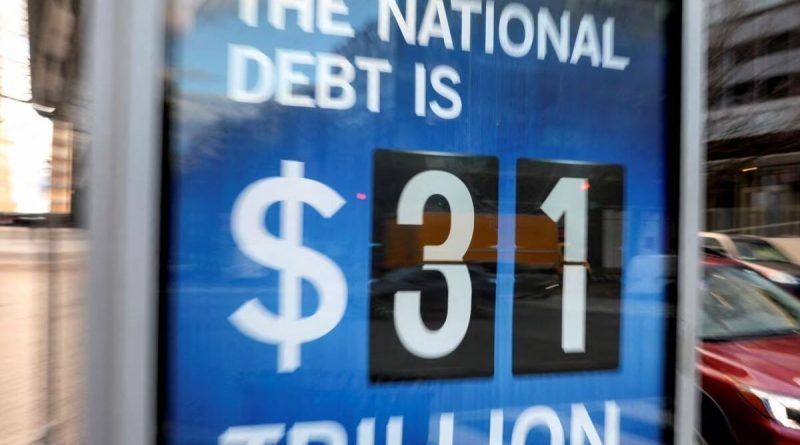Republicans demand the White House to negotiate an increase in the debt ceiling
Republicans demand the White House to negotiate an increase in the debt ceiling
Republicans who control the House of Representatives are divided over how tough the line should be on raising the national debt ceiling, but they unanimously demanded Wednesday that President Joe Biden agree to budget-spending negotiations for any kind of deal.
Conservative hard-line Republicans, who have been given the opportunity to block any deal in the House, want significant cuts in government spending from the Biden administration and the Democratic-led Senate in exchange for an agreement that would avoid defaulting on the $31.4 trillion national debt.
Moderate Republicans want to proceed more cautiously to avoid potential damage to the economy, but even they say their party will not support an agreement to raise the debt ceiling without negotiating spending cuts.
“I know we can’t ask to get the moon out of the sky,” Congressman Don Bacon, a moderate Republican whose voters in Nebraska in 2020 voted for Biden by a 6 percentage point margin, told Reuters. – But the president also can’t refuse to negotiate. That is, if he refuses to negotiate, he won’t get Republican support for anything.”
On Jan. 19, the federal government approached the $31.4 trillion borrowing limit set by Congress, and the Treasury Department warned that it might not be able to pay all government bills until early June. After that, the economy could run the risk of defaulting on obligations given by the government, including on debt securities.
This could cause panic among investors, which could cause markets to plummet and a major financial crisis and lead to a downgrade of United States debt, as happened during the cross-party debt ceiling debate in 2011.
During Donald Trump’s presidency, Congress has raised the debt ceiling three times. Republicans are now using the issue as leverage after they won a slim majority in the House of Representatives.
House Speaker Kevin McCarthy and Biden are expected to meet and discuss a possible increase in the national debt ceiling, among other issues. So far, however, that meeting has not been scheduled.
White House press secretary Karin Jean-Pierre confirmed Wednesday that Biden is willing to listen to ideas on how to reduce the debt, despite his opposition to negotiations on the issue.
“If people have ideas about what to do about the national debt and reducing it, he would be happy to hear that,” Jean-Pierre said in response to questions from reporters at the White House. – If we’re talking about default, we’re looking at that as a separate issue.”
Senate Republican leader Mitch McConnell, who has been instrumental in past debt negotiations, said any decision must come from McCarthy and Biden, adding that the Republican-controlled House is unlikely to accept decisions from the Democratic-led Senate.
“All the talk is that the White House needs to negotiate with the Speaker. They can’t just bypass the House,” said Republican Mike Lawler, in whose New York district Biden won the presidential election by a 10 percent margin. – There needs to be a serious understanding that we need to rein in spending.”
Demands for an agreement are getting louder as Treasury Secretary Janet Yellen has urged Congress to act immediately.
McCarthy is expected to begin negotiations, demanding that funding levels be reduced to 2022 levels to ensure a balanced federal budget over the next decade.
But hardliners, who used McCarthy’s election as speaker to secure concessions that weakened his position, have begun calling for deeper cuts in non-defense spending in anticipation of negotiations.
“We can carry out defense spending at 2023 levels. We can go back to pre-pandemic spending levels for the rest of the bureaucratic state, and we can go beyond the 2022 level,” said Chip Roy, a conservative leader.
Moderate Republicans, however, believe the party must take a different path to reach an agreement that can pass the Senate and become law signed by Biden.
Don Bacon suggested keeping spending in line with inflation. “That’s reasonable. It’s not a draconian solution. It bends the curve in the right direction,” the congressman said.
Another moderate Republican, Brian Fitzpatrick, favors a bipartisan proposal that would change the government’s borrowing limit from a fixed dollar amount to a percentage of national economic output.
Congressman Chris Stewart, a conservative from Utah, characterized the proposals of the hardliners and moderates as the first steps that would eventually lead to a “golden mean” and an agreement with Biden.
You may be interested: Meta will restore Trump’s Facebook and Instagram accounts
